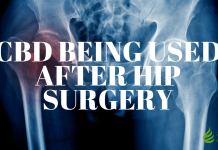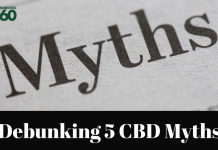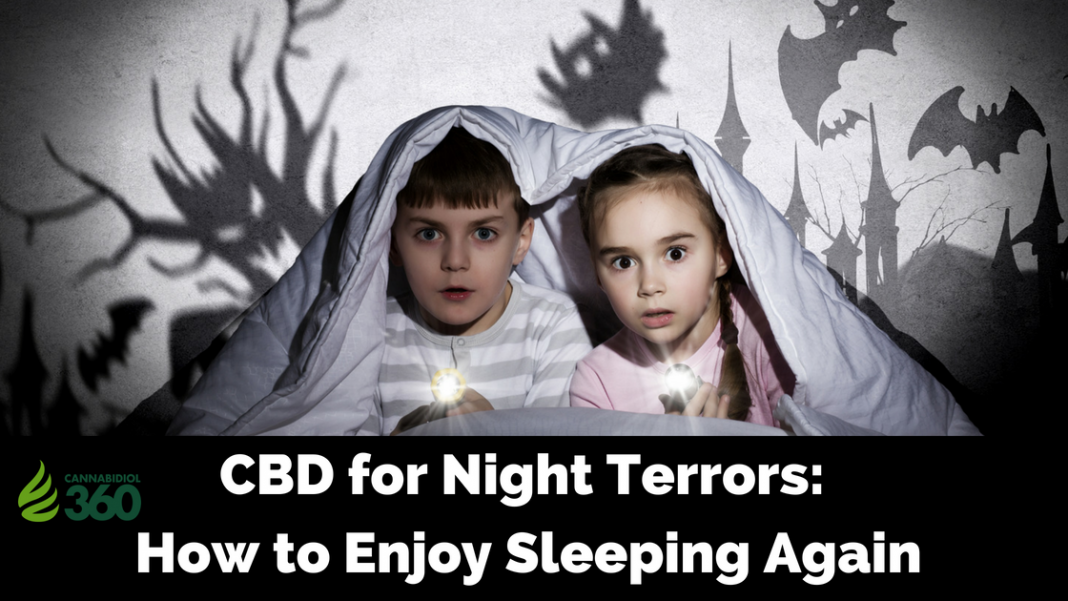
There are four stages of sleep and then rapid eye movement (REM) sleep. The first stage occurs in the first fifteen minutes. Within the hour, the third stage is reached.
This stage is called Non-rapid eye movement (NREM) which is compiled of sleep stages 1-4. It is deep sleep. It is also the stage at which night terrors happen, specifically during the transition from stage 3 to stage 4.
This point is the key difference between night terrors and nightmares, plus nightmares occur during REM sleep. Night terrors are described as a bout of pure visceral fear and terror in the course of sleep.
Night terrors will last anywhere from 5 to 30 minutes. Terrors can happen every day. You may also suffer sleep terrors every few days.
It is also possible to go for days and even months without a single episode. You could even experience night terrors multiple times throughout the night.
In this respect, there really is no pattern. One person’s tendencies should not apply to another.
Should You Talk About Night Terrors?
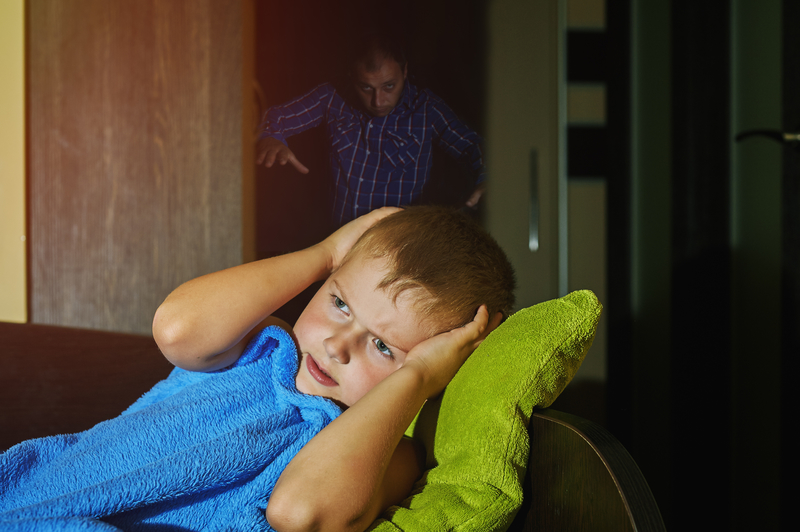
After this, you might not have any recollection of the episode in the morning. Some people will remember bits of it while others will remember everything.
It’s advisable not to remind a child that they had night terrors. An adult can be asked about it in case it opens a line of communication about any mental or psychological issues that could be causing the terrors.
Scheduled Awakening
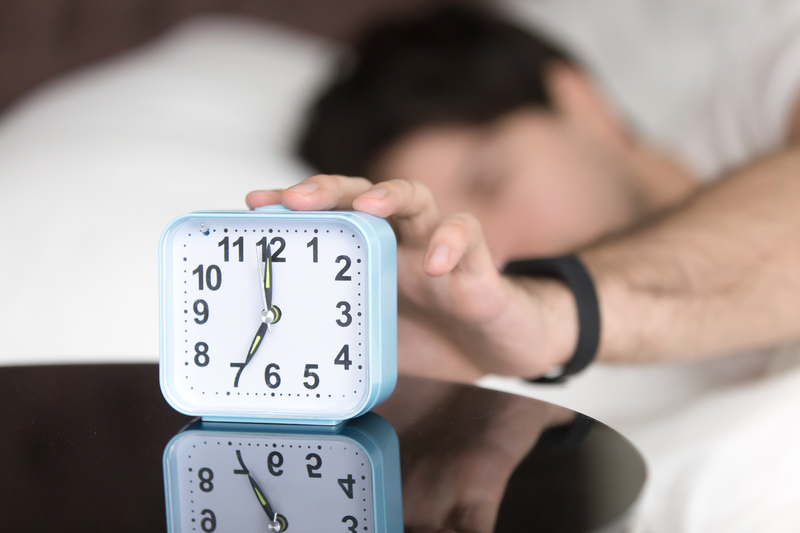
The cause of night terrors is not clear thus, the difficulty in developing treatment except for a mechanism called scheduled awakening.
This is when you are woken up about five minutes before the terror is expected to happen. Thankfully, night terrors happen at the same time every night.
It can be estimated by waiting about 90 minutes after the person has fallen asleep to wake them up, calm them down, and then let them get back to sleep.
So far, this mechanism has been found to be useful. However, the problem is the guesswork nature of it all. You would have to assume that there is a night terror looming to wake the person up.
Night Terror Prevalence
Night terrors can be hereditary. Anyone with a family history of night terrors is ten times more likely to develop this condition.
It could also be brought on by factors such a stress or diet. A different sleep disorder like sleep apnea could also bring on night terrors.
The condition will usually start at childhood between 3 and 12 years of age. The child will usually grow out of it.
However, it is only prudent to have your child evaluated to rule out disorders like mental issues or trauma. Adults also have night terrors although the percentage is much lower in adults.
The percentage of children who suffer night terrors could be as high as 6% while adults are only at 1%.
Adults around 20-30 years of age are more prone to night terrors than any other age group.
For an adult, it is important to look into the underlying conditions or triggers of the night terrors. Low blood sugar is a possible cause in both pediatric and adult night terrors.
What it’s Like to Experience Night Terrors
Night terrors are similar to panic attacks. The person is inconsolable with profuse sweating and rapid breathing. The heart rate is high at over 160 beats per minute.
For comparability, this is more than what is achieved in most high stress situations. There could also be thrashing of limbs and screaming.
In some instances, you will even sleep walk. Sleep walking and night terrors are pretty similar in that they are manifestations of the same parasomniac condition.
Night terrors can be induced if you are woken up at stage 4. This particular reason puts a damper on the Scheduled Awakening concept. Awakening could cause the night terrors instead of preventing it.
Brain Activity During Night Terrors

A study found that there is unusual activity in the brain during a night terror. From this study, it was concluded that night terrors are caused by some of sort of misfiring of chemical missiles in the brain.
It was also hypothesized that due to this unusual brain activity, the part of the brain that handles movement, voice, and expression stays awake while the rest of the brain is asleep.
This attributes the inability to wake a person while they are having a night terror. For one part of your brain, you are in deep sleep. The part that is awake is not big enough to cause the rest of it to stir.
Cannabidiol (CBD) is an agent of homeostasis. It finds a way to ensure that whatever function that is out of order will be knocked back in its place and that everything is working as it should.
This misfiring is one of functions that are knocked out of sync. The endocannabinoid system is widespread and it is therefore assumed that it can help modulate this unusual brain activity.
Sleep-Wake Cycle
The four stages of sleep ranges from merely lying there going through the events of the day to the part where the body gains a mind of its own and you drift along to slumber.
The depth of sleep increases progressively as each stage of sleep is achieved. After the fifth is reached (REM sleep) and completed, you will hopefully wake up from a dream in the morning instead of during the night.
CBD can affect progression and length of each sleep stage. You would seek to do this to either abate nightmares and/or night terrors.
This is according to a study in 2003 that found that through this mechanism cannabinoids were able to affect a longer more restful sleep.
Stress and Sleep Deprivation
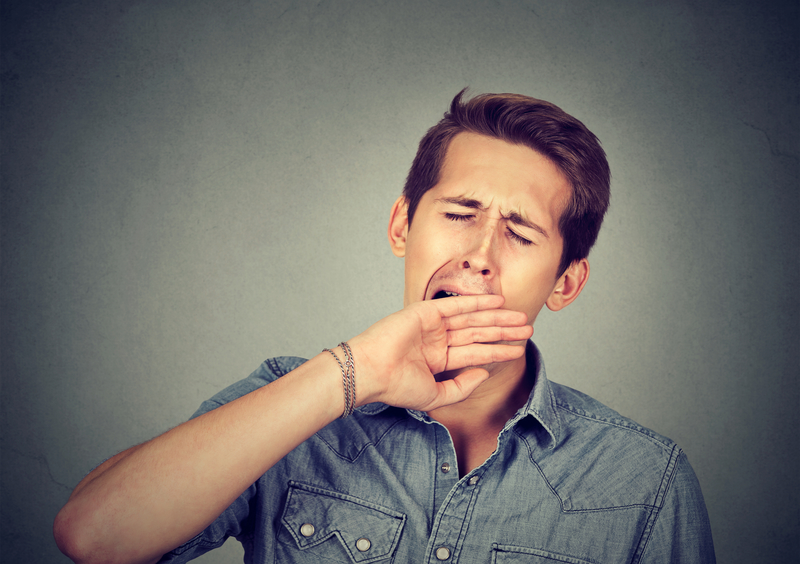
The thing with these two is that one can cause the other. Each of them can worsen the other. It is a literal vicious cycle. Both of them can also bring on night terrors.
If there is no other underlying condition or genetic reason for having night terrors then it is safe to assume that stress or sleep deprivation or both of these are the cause for your problem.
Gratefully, CBD is great at managing both of these! Stress is managed through action on anandamide and dopamine. The sleep thing might be taken care of after the stress has been managed but if not, CBD induces a sense of relaxation in higher doses.
In low doses, it is more an agent of alertness.
Low Blood Sugar
Hypoglycemia brings about production of adrenaline. This causes your brain to wake up thus you will be in a lighter more superficial state of sleep.
CBD is instrumental in regulation of blood sugar. To some degree, this hypoglycemia is brought on by an endocannabinoid system imbalance.
CBD would therefore be the best candidate, as it will knock the system back where it should be. It will also modulate production of insulin so that the blood glucose levels do not go too low.
Trigger Management
One of the common triggers of night terrors is medication that affects the Central Nervous System. Through the endocannabinoid system, CBD is able to effectively protect the neural field from such drugs.
Extremely high fever can cause convulsions and night terrors. Through activation of the TRPV-1 receptor, this regulates body temperature and inflammation.
CBD is able to keep the fever down before those points are reached.
Use After the Fact
After a particularly brutal night terror, it is important to help yourself or a loved one calm down. Usually with children, a hug and soothing hum will do the trick. It’s important that you get them right back to sleep.
However, with adults that might prove difficult due to the lethal punches they might be throwing and general aggression. An adult could be served with some CBD oil or tincture under the tongue while they are in the throes of the terror.
This will calm them down within minutes and even ward off the physical exertion they might experience.



